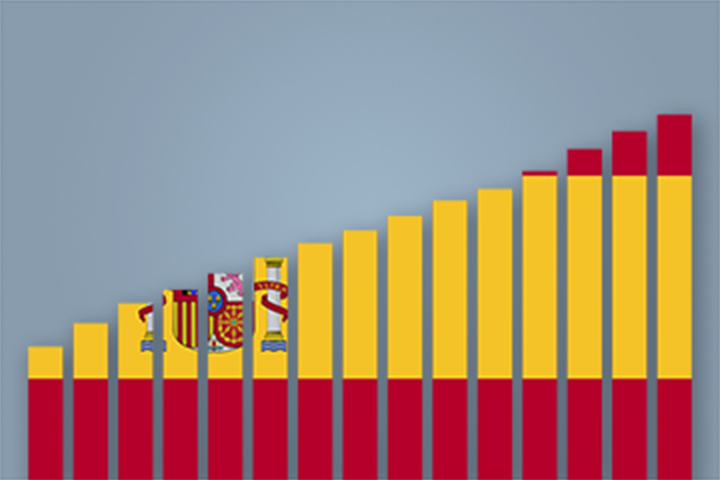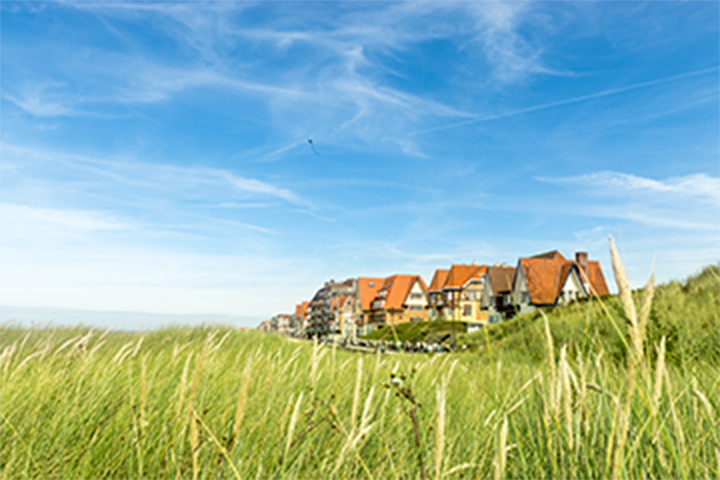How much can you borrow for a home?

Keytrade Bank
keytradebank.be
February 02, 2024
(updated June 26, 2025)
3 minutes to read
Your own home or a holiday home in the sun. Before your dream becomes a reality, there is a lot of admin for you to do first. A crucial factor is being able to raise sufficient funds. Whether you have already put some savings aside or are getting some help from your parents, there's still a good chance you'll need additional financing and will have to apply for a mortgage. The amount of money the bank will lend you depends on a range of factors, which are analysed together to determine your borrowing capacity.
> Want to run a free simulation? Get started straight away and find out how much you could borrow in less than two minutes.
The amount you can borrow primarily depends on the factors set out below.
Your financial situation and ability to repay
When a bank is deciding whether to grant you a mortgage loan or not, the bank is sure to want sufficient guarantees that you will be able to repay the amount you're borrowing. This means the bank will start by looking at your income. You should answer any questions the bank may have truthfully and in full.
Your salary as an employee or income as a self-employed person is, of course, taken into account. However, for example, a benefit from the National Employment Office (RVA) in the case of part-time work can also be considered. Income from the Groeipakket (child benefits) is not taken into account.
Your status also plays a role. If you have only been self-employed for a year, for example, the bank will take a more cautious approach than if you have been a civil servant for ten years. In other words, the more stable and predictable your income, the better. Your family composition is also an important factor. If you submit a joint application for a mortgage, the bank will look at the income of all applicants together. This can significantly increase your borrowing capacity.

The bank will also check whether you have any outstanding loans or regular outgoings (such as child maintenance) and look into your credit history. The bank must search for this information in the Individual Credit Register (ICR). As a rule of thumb, you can assume your monthly repayments (at Keytrade Bank) will amount to 45% of your net income. The higher your income, the more flexible the bank will be when looking at the ratio between the repayment amounts and the percentage of your income.
The value of the property
The bank also looks at the loan-to-value ratio, i.e. the ratio between the value of the property and the loan amount you wish to apply for. In some cases, the bank will have a real estate expert carry out a valuation of the property. The maximum amount you could borrow may therefore depend on the expert's valuation, too. A property's EPC score can also affect your borrowing capacity.
Recommendations provided by the National Bank of Belgium
The more stable, more regular and higher your income, the more you will be able to borrow. However, this is not the only thing you should bear in mind. Banks also have their own credit rules on the amount of mortgage loans they may grant. This means the costs of borrowing you'll be responsible for will vary from bank to bank. What's more, the National Bank of Belgium (NBB) published recommendations for the entire banking sector a few years ago. These recommendations (note that they are not obligations) set out that you may borrow up to 90% of the value of the property. Looking at it another way, that also means you need to have a 10% deposit, plus additional funds for notary fees, other costs and registration fees. However, there are some exceptions to the NBB's recommendations:
• For first-time buyers: A bank may finance more than 90% of the value in 35% of loans, and more than 100% of the value for 5% of the loans in this category. • For those wishing to buy a second home: A bank may provide between 90% and 100% of the purchase price for 20% of these loans. • For those wishing to purchase a buy-to-let property, you are expected to put in 20%, although the banks are allowed to request a personal contribution of 10% in 10% of loans in this category.
Outside of these recommendations, loans are rarely granted for more than 100% of the purchase price. This means that in practice, the chances of you being able to borrow more than the property's purchase price are slim. It's worth noting that a bank will usually require a deposit that is sufficiently high, and usually more than 10%, too. It goes without saying that the larger your deposit, the better. These days, a 20% deposit has become the norm.
For a sole residence, Keytrade Bank grants loans up to a maximum of 100% of the purchase price, up to 90% for a second home, and up to 80% for investment property.


